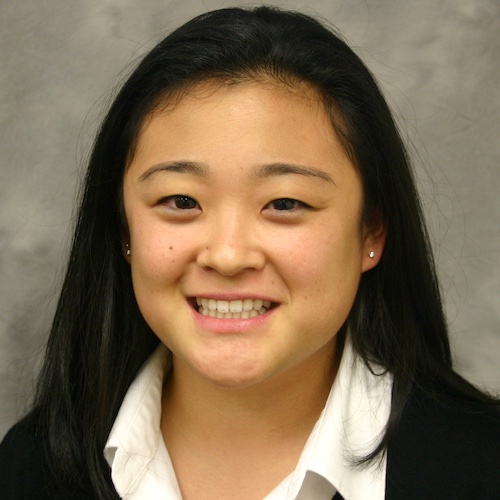Stacey Morikawa OTD, OTR/L
Associate Professor of Clinical Occupational Therapy
Keck Hospital
CHP 133
(323) 442-5370
.(JavaScript must be enabled to view this email address)
Stacey Morikawa received her bachelor’s degree in Biological Sciences with an emphasis in Exercise Biology from the University of California, Davis. She then pursued her master’s degree in occupational therapy at USC, where she also completed her clinical Doctorate of Occupational Therapy degree. During her doctoral residency at Keck Hospital of USC she developed an occupational therapy program for patients undergoing bone marrow transplantation.
Dr. Morikawa currently practices on the acute inpatient team at Keck Medical Center of USC. She also continues to focus on occupational therapy programming for people undergoing bone marrow transplantation and other oncological diseases.
Education
Doctorate of Occupational Therapy (OTD)
2012 | University of Southern California
Master of Arts (MA)
in Occupational Therapy
2011 | University of Southern California
Bachelor of Arts (BA)
in Biological Science
2009 | University of California, Davis
Selected Publications
Newman, R. M., Polo, K. M., Amanat, Y., Campbell, C., Fleischer, A., & Morikawa, S. (2024). Occupational therapy practice guidelines for adults living with and beyond cancer. American Journal of Occupational Therapy, 78(5), 7805397010. https://doi.org/10.5014/ajot.2024.078501 Show abstract
Objective. These Practice Guidelines aim to assist occupational therapy practitioners, educators, and researchers in applying evidence and expert opinion to occupational therapy practice across the cancer continuum of care, including identifying gaps in care. Key focus areas include psychosocial function, fatigue, cognition, pain, sleep, and physical activity. These guidelines can serve as a reference for policymakers, health care professionals, health care managers, regulators, third-party payers, and managed care organizations to manage, reimburse, and set policy.
Method. We examined, synthesized, and integrated the results of systematic reviews, supporting literature, and expert opinion to develop and provide clinical recommendations for practice in the care of adults living with and beyond cancer.
Results. Sixteen systematic reviews with moderate to strong strength of evidence published between 2019 and 2022 served as the foundation for these Practice Guidelines.
Conclusions and Recommendations. To support symptom management for adults living with and beyond cancer, occupational therapy practitioners can consider using psychosocial interventions for anxiety, depression, posttraumatic growth, and overall psychological distress. Practitioners can consider using physical activity interventions for cancer-related fatigue, cognitive performance, and sleep. Practitioners could also consider using interventions for cognition, pain management, and self-management for the improvement of cancer-related symptoms.
Keywords. adult, cancer, occupational therapists, practice guidelines, fatigue, systematic reviews
Morikawa, S., & Amanat, Y. (2023). Occupational therapy and adult cancer rehabilitation. In E. A. Pyatak & E. S. Lee (Eds.), 50 studies every occupational therapist should know (pp. 283-288). Oxford, UK: Oxford University Press. https://doi.org/10.1093/med/9780197630402.003.0041 Show abstract
The articles “Systematic Review of Occupational Therapy and Adult Cancer Rehabilitation,” part 1 and part 2, examine the evidence of the effectiveness of occupational therapy interventions on adults with cancer. The systematic review highlights the importance of interventions including physical activity, symptom management, multidisciplinary rehabilitation programs, and interventions targeting psychosocial concerns, sexuality, and return to work. Strong evidence indicates that physical exercise is safe and beneficial for most cancer survivors, most notably to address cancer-related fatigue. Strong evidence supports the benefit of multidisciplinary rehabilitation for cancer survivors as well as the benefit of psychosocial intervention in reducing anxiety and depression. Moderate evidence supports the effectiveness of interventions on sexuality and return to work; however, further research in this area is needed. This systematic review provides support for occupational therapy intervention in addressing the activity and participation needs of adult cancer survivors.
Keywords. adult cancer rehabilitation, occupational therapy, oncology rehabilitation, activity, participation, exercise, psychosocial, physical activity
Awards
Distinguished Fieldwork Educator Award | 2022
American Occupational Therapy Association
In Chan News
April 4, 2022
Lawlor is 16th USC-affiliated recipient of Slagle award, the profession's highest academic honor.
April 23, 2013
128 USC alumni, faculty, and students are scheduled to present at the 2013 Conference of the American Occupational Therapy Association, April 25-28 at the San Diego Convention Center. Presentation formats include a pre-conference institute, workshops, short courses, research and professional posters…
October 1, 2012
46 USC faculty, alumni, and students are scheduled to present lectures and/or posters during the Occupational Therapy Association of California 2012 Conference, October 4-7 in Pasadena. Click below to view the full list of USC presenters, to plan your conference accordingly, and remember to reunite…
May 1, 2012
Division Associate Dean and current American Occupational Therapy Association President Florence Clark PhD (’82), OTR/L, FAOTA, presided over the 92nd annual AOTA conference, April 26-29, in Indianapolis, Ind. Conference highlights included a rousing Opening Ceremony, Clark's Presidential Address…






